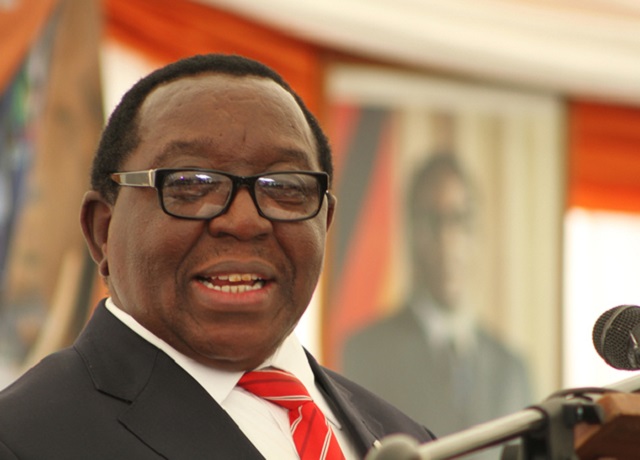EDITORIAL COMMENT: Elections gone, focus now shifts to the economy

Exactly seven days ago, Zimbabweans voted to renew Zanu-PF’s mandate while giving President Mnangagwa his first as State President.
Following the historic electoral success, the ruling party members and supporters are holding impromptu celebrations across the country. We expect more formal ones to be staged in the next few days, or weeks.
President Mnangagwa won 50,8 percent of the vote while his closest challenger, Mr Nelson Chamisa, who led an alliance of seven parties, got 44 percent.
In the legislature, Zanu-PF won 145 seats versus 63 for the coalition. Observers have declared the election as free, fair, transparent and credible. China, America, Britain and South Africa, Tanzania, Zambia and Malawi as well as Sadc and the African Union have all congratulated President Mnangagwa for the electoral success and expressed a willingness to work with his new government.
With elections now behind us, President Mnangagwa and the ruling party will shift attention more firmly to the economy and promoting national healing.
Zimbabweans have suffered much economic hardship over the past 18 years. Western sanctions that were imposed over the land reform programme, coupled with a few flawed policies have resulted in hundreds of companies shutting down, lines of credit being cut, foreign direct investment drying up and hundreds of jobs being lost. Living standards of the masses have resultantly deteriorated.
However, the people hope that the credible election that came and has just gone will be the tonic that their economy needs for a real, durable turnaround.
Since he took over in November last year, President Mnangagwa has pushed hard for that. He has led the rebuilding of relations between Zimbabwe and the US and Europe. Prior to his assumption of office, ties between Zimbabwe and the West were tense but the President has done a lot to improve them. In addition to reengaging the West, President Mnangagwa has been boosting existing strong relations between the country and its traditional partners in the East — China, Russia and other countries in that part of the world.
His government has amended the Indigenisation and Economic Empowerment Act, one piece of legislation that discouraged foreigners from putting their money into our economy. After the amendment in January, foreign investors can now invest in any sector of the economy with no need to secure a local partner. However, investments in the platinum and diamond mining remain subject to that law.
The President has sent envoys to, or has personally visited America, Britain, the European Union (EU) and Sadc countries to drum up economic and political support. In January he went to the World Economic Forum in Switzerland and in April paid a State visit to China.
Thanks to these efforts, dozens of companies have pledged to invest at least $16 billion on the local market while others have actually invested. Metallon Corporation, Falcon Gold and Pickstone Peerless Gold Mine plan to expand their operations in response to the conducive investment climate created by President Mnangagwa’s administration.
Metallon announced last week that it plans to modernise its mines — How Mine, Shamva, Mazowe and Redwing — to the tune of US$530 million given its strong position to invest due to improved economic conditions.
In addition, there is the US$4,2 billion platinum project by Karo Resources, the US$3 billion Great Dyke Investments (GDI) platinum project, the US$1billion Zisco revival deal, the US$1,4 billion Kamativi lithium project and the Liberation Mining’s US$500 million coal mining project.
In terms of infrastructure development, the $400 million Diaspora Infrastructure Development Group has taken off with new rolling stock worth millions already in operation at the National Railways of Zimbabwe.
There is no doubt that President Mnangagwa laid a strong foundation over the past seven months. Now that we have had a credible election in which the masses voted for Zanu-PF and therefore for continuity, the country stands on the threshold of an economic take-off. It would have been a different state of affairs if a new set of hands had been elected into office.
To facilitate the turnaround, we expect the EU and the US to remove sanctions on Zimbabwe. There have been encouraging signals from Brussels and Washington DC in that respect. They have shown a willingness to give our country a chance and the free and fair election that they observed should move them to remove their restrictive measures on our country.
More is set to come from China. The emerging economic power elevated its relations with Zimbabwe to a Comprehensive Strategic Cooperation and Partnership which puts our country in a position to benefit more economically from that country. China tends to focus its support on infrastructural development. We have lacked in that area so the new administration will welcome greater Chinese support in that respect.
“It’s a country with huge potential,” said World Bank VP for Africa, Hafez Ghanem of Zimbabwe, adding that the country “can easily become an upper middle-income country in a very short time. Depending on the type of programmes, five to ten years. Zimbabwe has some of the most educated people on our continent, so we have human capital and we have natural resources.”
Indeed the economy has, since last November, been getting ready for a take-off. The elections we have just had will make that happen.










Comments